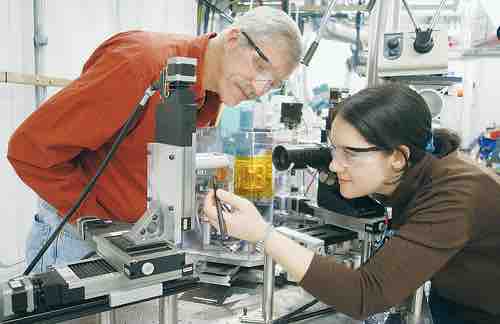As we age, we face more and more health problems. According to the Centers for Disease Control and Prevention, the leading causes of death for Americans are heart disease and cancer. Statistically, heart disease and cancer account for the most American deaths by far. In 2009, heart disease claimed 599,413 lives and cancer was responsible for 567, 628 deaths. Of course, these numbers include all ill individuals, not just the elderly.
Heart Disease
Because of the prevalence of heart disease and cancer among the elderly, many American hospitals have developed programs to treat seniors with these particular afflictions. Geriatrics is the field of medicine that specializes in treating older adults. Cardiogeriatrics refers to the branch of healthcare that treats heart disease in older adults. Heart disease is common in seniors because as one ages, one's heart muscle begins to weaken and change in adverse ways. As the heart ages, one can develop arteriosclerosis, or the stiffening of arteries due to the accumulation of fatty buildup, or plaque, along the walls of the arteriesm, restricting blood circulation. Arteriosclerosis is common to older adults that contributes to congestive heart failure. This is the condition defined by the inability of the heart to provide adequate blood flow to the body.
Congestive heart failure is common, costly, disabling, and potentially deadly. In developed countries, around 2% of adults suffer from heart failure. Risk rises with age. In developed countries, 6–10% of adults over the age of 65 suffer from congestive heart failure. Congestive heart failure increases the risk that one will experience a myocardial infarction, or heart attack.
In a heart attack, blood supply to the heart is interrupted, causing damage to the heart muscle. When blood flow is stopped from going to the brain, usually due to a blood clot, one suffers from a stroke. Americans have more than 700,000 strokes every year, making it the third leading cause of death in the United States after heart disease and cancer. Nearly 75 percent of strokes occur in people over the age of 65, and the risk of having a stroke more than doubles during each decade between the ages of 55 and 85.
Cancer
Other than cardiovascular diseases, cancer is the most common, serious illness faced by the elderly. While anyone can develop cancer, the risk of getting certain cancers increases with age. Breast, colorectal, prostate, pancreatic, lung, bladder, and stomach cancers are especially linked to aging. Cancer can be even more difficult to treat in the elderly than in younger patients because treatment can be stressful on the body. Treating cancer involves some combination of radiation, chemotherapy, or surgery, all of which are more stressful on an aged body than a younger body. Recognition of the stress that treatment may have on an older body limits the options available for treatment.
Neuropsychological Disorders
Older adults are also more susceptible to certain neuropsychological disorders, such as dementia and Alzheimer's disease, that are virtually unseen in younger populations. Dementia is a serious loss of global cognitive ability in a previously unimpaired person—beyond what might be expected from normal aging. It may be static—the result of a unique brain injury—or progressive—resulting in long-term decline due to damage or disease in the body. Dementia is not a single disease, but rather a syndrome that is associated with a variety of different diseases, such as Alzheimer's. Symptoms of Alzheimer's include confusion, irritability, aggression, mood swings, difficulty with language, and memory loss. Most often, Alzheimer's disease is diagnosed in people over the age of 65. In 2006, there were 26.6 million sufferers worldwide. One in eight Americans over the age of 65 suffers from Alzheimer's and that number is set to rise in future years as the average lifespan continues to rise.
Obviously, aging presents serious concerns about health. A person's body is more likely to encounter disease as he or she ages. Frequently, preexisting medical ailments are exacerbated by social determinants of health. Social determinants of health are the extra-biological factors that influence how individuals experience their own health. For example, congestive heart failure does not necessarily kill someone. However, the patient with congestive heart failure is most likely going to be put on a complicated medication regime. Congestive heart failure combined with dementia—or even normal forgetfulness associated with aging—makes adhering to a strict regimen difficult for many older adults. The elderly are frequently dependent on younger adults for assistance. The types of care to which the elderly have access can have serious medical consequences.

Studying Alzheimer's Disease in the Argonne National Laboratory
Mark Davidson (left), University of Florida, and Joanna Collingwood, Keele University, scrutinize a sample of Alzheimer's brain tissue.